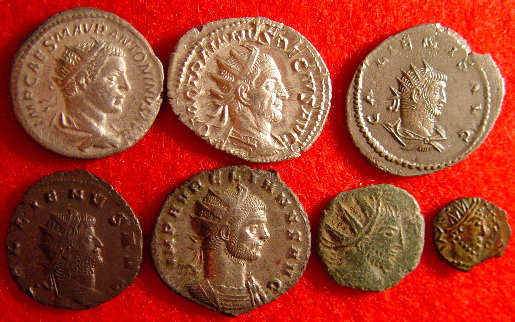Monetary economy
Michael Rostovtzeff, Ludwig von Mises, and Bruce Bartlett
"Historian Michael Rostovtzeff and economist Ludwig von Mises both argued that unsound economic policies played a key role in the impoverishment and decay of the Roman Empire. According to them, by the 2nd century A.D., the Roman Empire had developed a complex market economy in which trade was relatively free. Tariffs were low and laws controlling the prices of foodstuffs and other commodities had little impact because they did not fix the prices significantly below their market levels. After the 3rd century, however, debasement of the currency (i.e., the minting of coins with diminishing content of gold, silver, and bronze) led to inflation. The price control laws then resulted in prices that were significantly below their free-market equilibrium levels."
"According to Rostovtzeff and Mises, artificially low prices led to the scarcity of foodstuffs, particularly in cities, whose inhabitants depended on trade in order to obtain them. Despite laws passed to prevent migration from the cities to the countryside, urban areas gradually became depopulated and many Roman citizens abandoned their specialized trades in order to practice subsistence agriculture. This, coupled with increasingly oppressive and arbitrary taxation, led to a severe net decrease in trade, technical innovation, and the overall wealth of the empire.[5]"
"Bruce Bartlett traces the beginning of debasement to the reign of Nero. By the third century the monetary economy had collapsed. Bartlett sees the end result as a form of state socialism. Monetary taxation was replaced with direct requisitioning, for example taking food and cattle from farmers. Individuals were forced to work at their given place of employment and remain in the same occupation. Farmers became tied to the land, as were their children, and similar demands were made on all other workers, producers, and artisans as well. Workers were organized into guilds and businesses into corporations called collegia. Both became de facto organs of the state, controlling and directing their members to work and produce for the state. In the countryside people attached themselves to the estates of the wealthy in order to gain some protection from state officials and tax collectors. These estates, the beginning of feudalism, operated as much as possible as closed systems, providing for all their own needs and not engaging in trade at all.[6]"
5 ^ See, for instance, "How Excessive Government Killed Ancient Rome", by Bruce Bartlett, and "The Rise and Decline of Civilization", by Ludwig von Mises
6 ^ "How Excessive Government Killed Ancient Rome", by Bruce Bartlett
